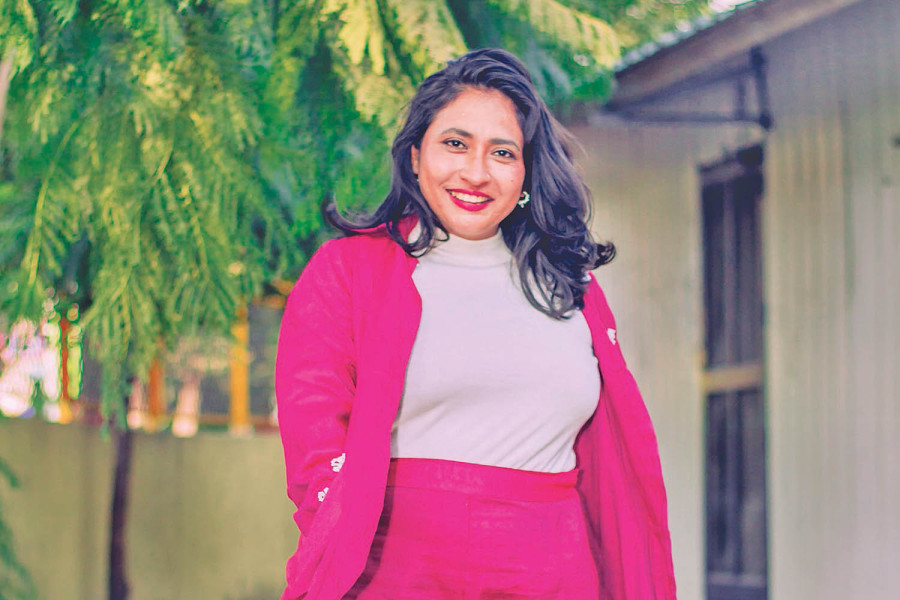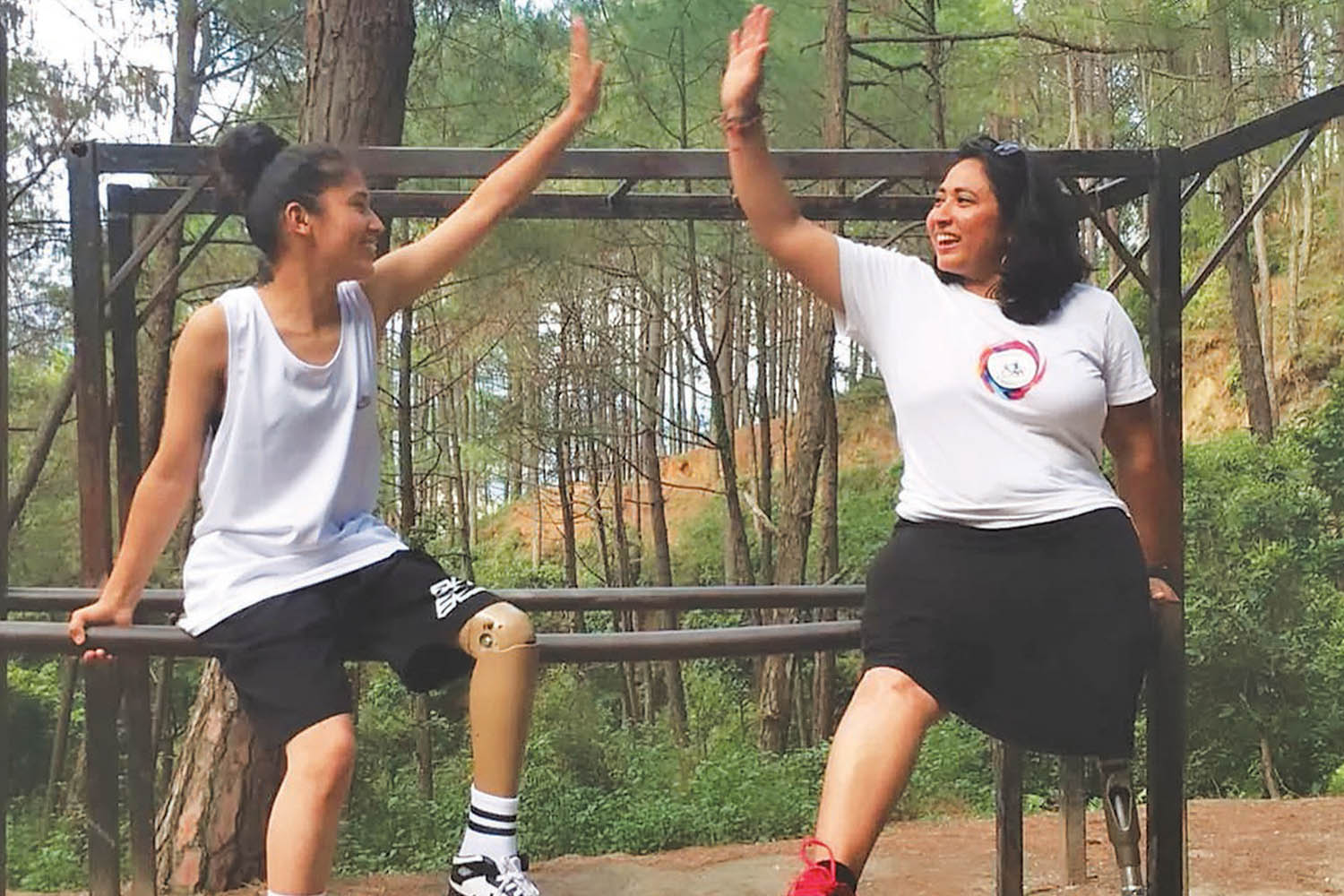National
Nirmala Bhandari brings people with disabilities off the sidelines
She battles societal prejudices, taboos and state apathy to pursue interests—wheelchair basketball, para-powerlifting, social work and performing arts—and excel at them.
Ellie Davis
Fourteen years ago, when Nirmala Bhandari was in the first year of her bachelor’s programme in health education, one of her teachers didn’t let her pass the course because he thought she couldn’t participate in the physical education class with her prosthetic leg.
“It was a very frustrating moment,” Bhandari said. “It was hard for me and my ego to let it go.”
Bhandari didn’t let this teacher snuff out her passion for sports. Since then, Bhandari has become a champion in wheelchair basketball and para-powerlifting. Now, with a newly formed foundation in her own name, the 2019 Inspirational Women of Nepal award winner is working to bring other people with disabilities off the sidelines and into sports.
Bhandari lost her left leg in a traffic accident in Kathmandu when she was four years old, but her disability never diminished her desire to be active, despite judgment from her peers and teachers.
“Since my childhood, I’ve been facing people saying, ‘You can get hurt, please be safe. You stay there. Don’t play,’” she said. “My teachers and the people who see me as disabled don’t want me to play as they think that I could get hurt.”
Bhandari got her first prosthetic leg when she was in grade 6, and would walk the 2–3 km to school every day.
“That was the hardest thing. I used to cry almost every day while wearing the prosthetic,” she said. “Even now I walk very slowly, and I sometimes feel I miss so many things, but at least I'm able to walk.”
While getting her bachelor's degree, Bhandari joined Impact Nepal, an NGO that works on disability prevention. In 2016, during a visit to the National Federation of Disability Nepal, Bhandari overheard another disabled woman talk about a new women’s wheelchair basketball team. Bhandari waited for two hours to get a chance to talk to the athlete. Two weeks later, Bhandari played in her first tournament with the team. But to her disappointment, they lost the match.
“I was heartbroken,” she said. “I did so much work—we used to play from 2 pm to 6 pm every day.”
With the encouragement of some of the older players, Bhandari kept training with the team. In 2017, as a national team player, Bhandari helped her team win an international tournament by beating India and Bangladesh.
While competing in wheelchair basketball, Bhandari also began Olympic weightlifting. She holds the 2018, 2019, and 2020 national para-powerlifting titles and travelled to compete in the Para-Asian Games in 2018.
A lack of government-sponsored financial support for paralympic athletes in Nepal limited Bhandari’s ability to continue competing internationally. Unlike other athletes at the Para-Asian Games, Bhandari had to pay for her own plane ticket.
In 2020, Bhandari also started dealing with a shoulder injury that has prevented her from continuing to pursue para-powerlifting. Instead, Nirmala has focused on traveling. She went on a 35-day solo trip around Nepal, and next year she is planning to do the Everest Base Camp trek.
“I just want another challenge,” she said. “It will definitely add awareness in people's mind that if somebody has a disability, that disability is not inability.”

Bhandari has also recently taken to the stage. In July, she performed stand-up comedy at a beauty pageant and was crowned Miss Disability Queen Nepal 2024. Last Sunday, in collaboration with Katha Ghera theatre production at the Women of the World Festival in Naxal, Bhandari and other women performed in a play titled ‘But Still, We Rise’, by Milson Rai, which aims to tell the stories of women from marginalised groups.
Now, at the Nirmala Foundation, Bhandari works alongside her partner Krishna Budha Chhetri, who helps with photography, social media, and writing proposals. As a non-disabled person, he came to understand the struggles of disabled people only after meeting Bhandari in 2021.
“From the perspective of normal people, I don't think they understand the hardships of disabled people,” Chhetri said. “I think disabilities should be normalised in Nepal.”
“There are still lots of taboos,” Bhandari said. “Even the individuals with disabilities are not comfortable talking about them.”
In its first year, the Nirmala Foundation has supported disabled children’s activities like yoga, hiking, and artwork, and has brought inclusive sports such as wheelchair table tennis and para-badminton to children at Vidya Byayam English Secondary School in Gokarneshwar, Kathmandu.
Next, Bhandari hopes to create a girls’ wheelchair basketball team, with the dual goals of fostering confidence in the athletes and cultivating more talent for Nepal’s adult team.
Bhandari hopes that her athletic endeavours and adventures will show other disabled people that they too can participate in sports or other activities.
“I want to be someone who can be a light so people can get information and access,” she said. “[Disabled people] should be visible.”




 22.65°C Kathmandu
22.65°C Kathmandu












